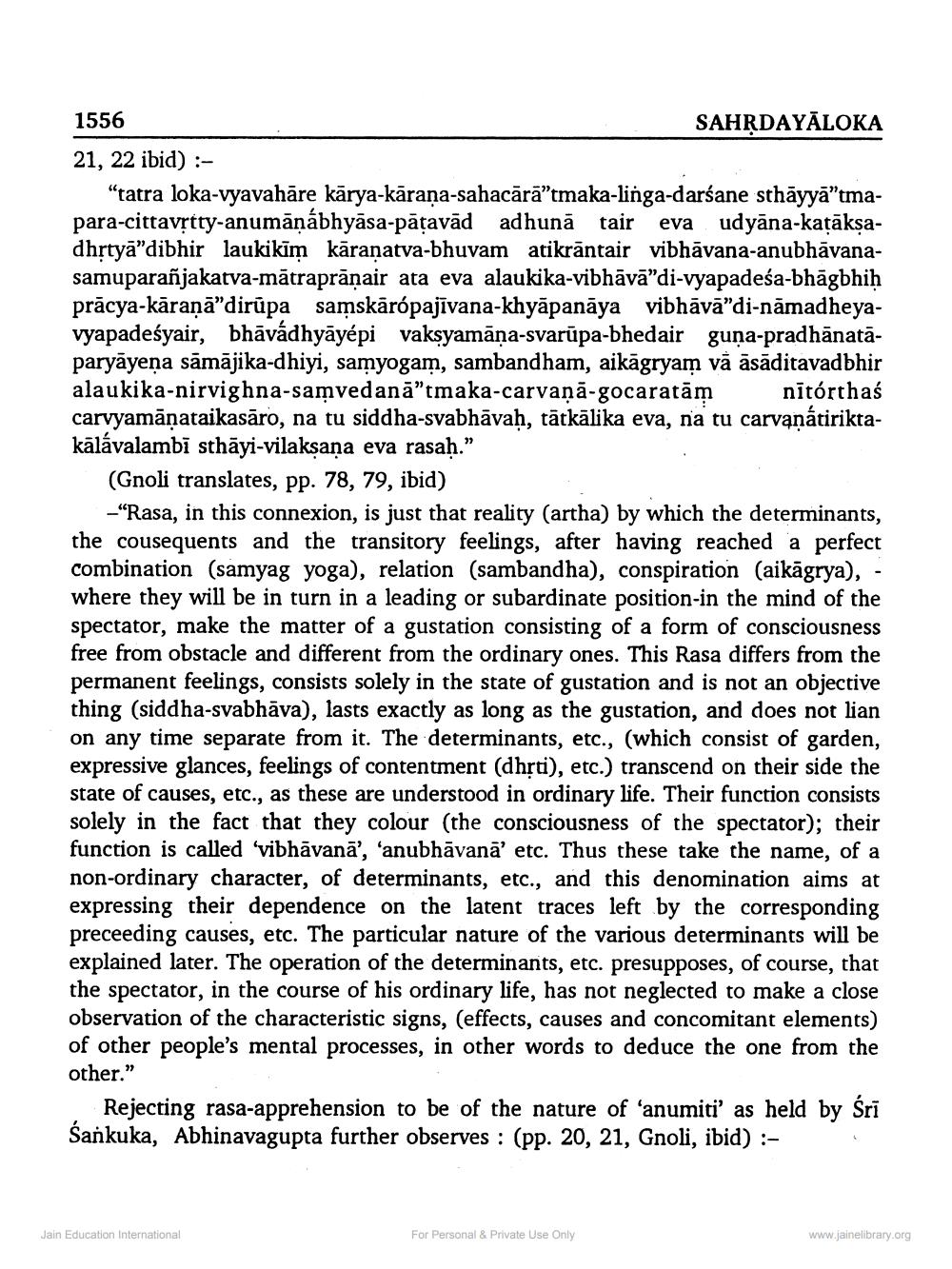________________
1556
SAHRDAYĀLOKA 21, 22 ibid) :
“tatra loka-vyavahāre kārya-kāraṇa-sahacārā”tmaka-linga-darśane sthāyyā"tmapara-cittavrity-anumā hyāsa-pātavād adhunā taireva udyāna-katāksadhrtya"dibhir laukikīm kāranatva-bhuvam atikrāntair vibhāvana-anubhāvanasamuparañjakarva-mātraprānair ata eva alaukika-vibhāvā”di-vyapadeśa-bhāgbhih prācya-kāraņā”dirūpa samskārópajīvana-khyāpanāya vibhāvā”di-nāmadheyavyapadesyair, bhāvádhyāyépi vaksyamāņa-svarūpa-bhedair guna-pradhānatāparyāyeņa sāmājika-dhiyi, samyogam, sambandham, aikāgryam và āsāditavadbhir alaukika-nirvighna-samvedanā”tmaka-carvaņā-gocaratām n ītórthas carvyamānataikasaro, na tu siddha-svabhāvah, tātkālika eva, na tu carvanátiriktakālávalambī sthāyi-vilaksaņa eva rasaḥ.”
(Gnoli translates, pp. 78, 79, ibid)
-“Rasa, in this connexion, is just that reality (artha) by which the determinants, the cousequents and the transitory feelings, after having reached a perfect combination (samyag yoga), relation (sambandha), conspiration (aikāgrya), - where they will be in turn in a leading or subardinate position-in the mind of the spectator, make the matter of a gustation consisting of a form of consciousness free from obstacle and different from the ordinary ones. This Rasa differs from the permanent feelings, consists solely in the state of gustation and is not an objective thing (siddha-svabhāva), lasts exactly as long as the gustation, and does not lian on any time separate from it. The determinants, etc., (which consist of garden, expressive glances, feelings of contentment (dhrti), etc.) transcend on their side the state of causes, etc., as these are understood in ordinary life. Their function consists solely in the fact that they colour (the consciousness of the spectator); their function is called 'vibhāvanā', 'anubhāvana' etc. Thus these take the name, of a non-ordinary character, of determinants, etc., and this denomination aims at expressing their dependence on the latent traces left by the corresponding preceeding causes, etc. The particular nature of the various determinants will be explained later. The operation of the determinants, etc. presupposes, of course, that the spectator, in the course of his ordinary life, has not neglected to make a close observation of the characteristic signs, (effects, causes and concomitant elements) of other people's mental processes, in other words to deduce the one from the other."
Rejecting rasa-apprehension to be of the nature of 'anumiti' as held by Śrī Sankuka, Abhinavagupta further observes : (pp. 20, 21, Gnoli, ibid) :
Jain Education International
For Personal & Private Use Only
www.jainelibrary.org




